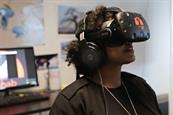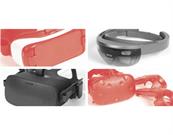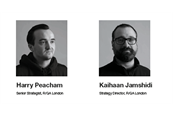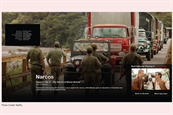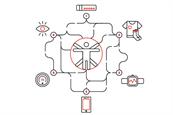James Temple, EVP, managing director, executive creative director, R/GA EMEA "Whenever you get the idea that you are ‘fixed’ or that anything is ‘fixed for life’, you’d better get ready for a sudden change." That was Henry Ford speaking in 1933, two decades after he launched the Model T Ford. His car was one of the biggest disruptions of the 20th century, sending shockwaves through the automotive industry. Its impact was soon absorbed into culture itself: cheaper cars meant more drivers, more roads, quicker travel and better access to education, jobs and amenities – transforming everyday life for just about everyone.
"Whenever you get the idea that you are ‘fixed’ or that anything is ‘fixed for life’, you’d better get ready for a sudden change." That was Henry Ford speaking in 1933, two decades after he launched the Model T Ford. His car was one of the biggest disruptions of the 20th century, sending shockwaves through the automotive industry. Its impact was soon absorbed into culture itself: cheaper cars meant more drivers, more roads, quicker travel and better access to education, jobs and amenities – transforming everyday life for just about everyone.
Big tipping points like this don’t happen overnight. They’re made up of smaller shifts, each building up to the next over time. Wholesale change arrives when communities adopt something personally and that’s what connected cars and autonomous driving is all about: making the journey less about the vehicle and more about you, the traveller. Does this mean the writing is on the wall for traditional carmakers? Maybe. The early signs are already out there, looking like smaller disruptions pointing to a bigger shift to come.
Car manufacturers are gradually introducing more semi-autonomous features, to build new levels of trust in their safety benefits. Tesla has put together its own insurance plan to fully cover the owner of a driverless car.
Are you liable when the technology is in control? It’s all taken care of. Traffic apps like Waze are encouraging carpooling and real-time data sharing to ease city congestion. In cities like New York and San Francisco, urban planners are reclaiming public spaces by redistributing the number of cars sitting parked and idle.
We’ve reached a point where the world ushered in by Ford needs a new paradigm: one with fewer drivers but as many empowered passengers as possible. Software prototypes like OpenPilot are making cars aware of other cars when they switch into cruise control. New auto brands like Lynk & Co want to give their vehicles an app store, letting you manage them remotely. We won’t all wake up tomorrow in a self-driven utopia, gliding off to work like the Jetsons. But something is happening and change is here. By the time your grandchildren are old enough to drive, will "old enough to drive" even mean anything, anymore?
Claire Beale, global editor-in-chief, ±±ľ©Čüłµpk10 When car ownership became a realistic aspiration for the mass of people in the West, back in the mid-50s, the automobile was a mainstream symbol of freedom and luxury.
When car ownership became a realistic aspiration for the mass of people in the West, back in the mid-50s, the automobile was a mainstream symbol of freedom and luxury.
And so it remained for well over half a century. Fueled by lavish commercials showing sleek roadsters powering along sunny open roads, we were inured in the ambition to have our own motor.
But that’s changing. Our cities are increasingly affected by congestion and pollution. While car ownership does empower a level of independence for drivers, it isn’t strictly synonymous with freedom. For many people cars are increasingly an expensive (parking, petrol, insurance, climatic impact) item they simply can’t live without.
Reading this latest R/GA FutureVision report, it’s staggering how quickly attitudes are shifting. For millennials raised in the sharing economy, who value utility above luxury and are acutely aware of sustainability, car ownership is no longer obviously aspirational. Not surprisingly, technology is fully keeping pace with this shift, as old and new auto manufacturers race to adopt the constant stream of new tech. It’s smartly summed up by a line in this report, quoting venture capitalist Marc Andreessen: "Right now the phone is an accessory to the car, but pretty soon the car is going to be an accessory to the phone."
I defy anyone to not be intrigued and excited by the possibilities this offers. Driverless cars, set to go mainstream within a matter of years, are just the beginning of the revolution ahead. It’s not just the connected cars that will look and behave differently, our cities will adapt to reflect the needs of the new vehicles, and our lives will mould around the new opportunities that will come from the easier movement of people and products.
It’s hard to imagine a business that won’t be touched by the changes that lie just round the corner. If you’re not already planning how you will flex to cope and take advantage, this FutureVision report is an excellent place to start.








